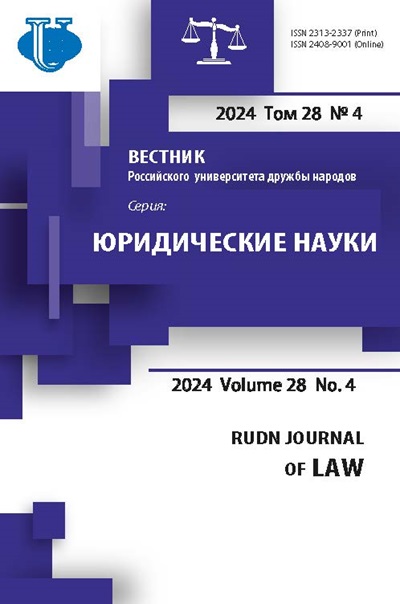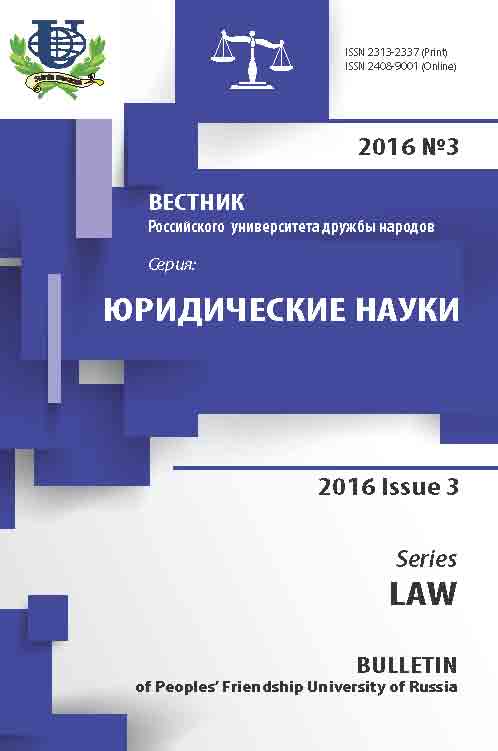Judiciary Transformations in the Russian Empire of the mid XVIII century, as Precondition of the Public Institutions Legal Base Establishment
- Authors: Lapteva L.Y1
-
Affiliations:
- The Russian Presidential Academy of National Economy and Public Administration under the President of the Russian Federation
- Issue: No 3 (2016)
- Pages: 57-75
- Section: Articles
- URL: https://journals.rudn.ru/law/article/view/14782
Cite item
Full Text
Abstract
The article deals with some problems of the Russian justice system development over the middle forty years of the XVIII century. It highlights that those were not only the years of stagnation in the development of the judiciary, but also the time of the latent specialization and stabilization of judicial system. It was during the period considered when increasing complexity of the system of judicial and administrative institutions was in progress hand by hand with the gradual assertion of the idea of the legality in management and judgment. There appears awareness of the need for knowledge of the law as an important employment condition in staff of any government institutions. At the first glance, the system of the supreme and central court underwent the minimum changes during the period considered, although fiskalat and prosecutors activities were relatively fruitful. Strange as it may seem, but even within bodies of political investigation the requirement to follow rules of assessment of legality of accusations and proofs including methods of their obtaining existed formally and sometimes was followed. The extraordinary procedure for political trials was in the end forbidden to use by the Manifesto February 21, 1762. Judicial activities remained an important component of boards competence, and secretaries and judges were to be fined, according to law, for unjust trial. However, in view of a lack of the trained personnel the caught and punished judges were not released from a position, and in case of returning to crime the penalty in the same size was again levied from them. The local judicial administrative system badly coped with its’ tasks, therefore it was constantly reformed. All the guidance and supervision of the local courts were transferred to the governors. The exceptions were the church and the military courts. The question of the jurisdiction under the urban population transfer to magistrates was resolved rather accurately in the time of Peter. Then they ceased to submit to voivodes. Only throughout the short period (from 1727 to 1743) the Main Magistrate and magistrates in all cities were replaced with town halls with annually replaced bailiffs.
Keywords
About the authors
Liudmila Y Lapteva
The Russian Presidential Academy of National Economy and Public Administration under the President of the Russian Federation
Email: lelapteva@gmail.com
Institute of Law and National Security; The Institute of State and Law of The Russian Academy of Sciences 10, Znamenka st., Moscow, Russia, 119019 84, Prospect Vernadskogo, Moscow, Russia, 119571
References
















